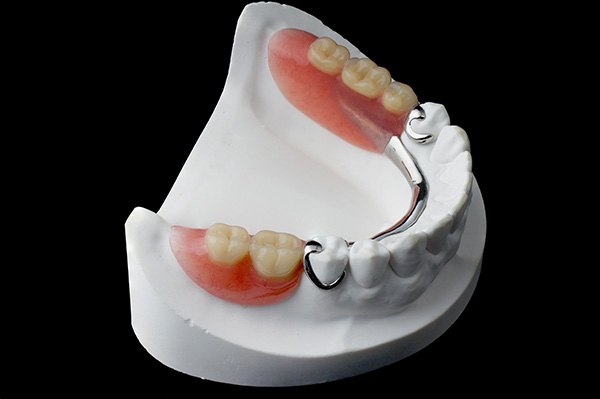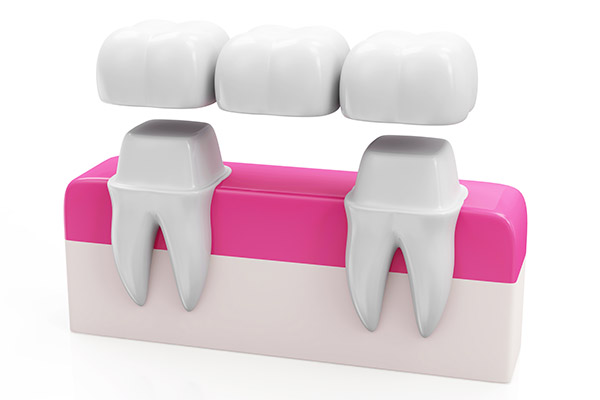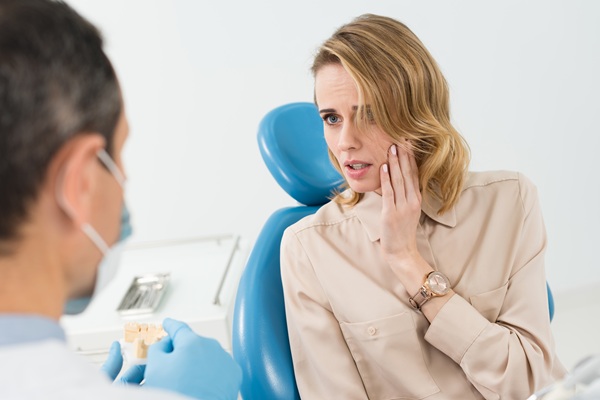 Dentures are a removable option for replacing missing teeth that can provide the wearer with either a full or partial set of false replacement teeth. Your best choice depends on the number of natural teeth that need to be replaced. In either case, a crucial aspect of successful denture wearing is proper care and hygiene of the appliance, and both types require individual steps for appropriate care.
Dentures are a removable option for replacing missing teeth that can provide the wearer with either a full or partial set of false replacement teeth. Your best choice depends on the number of natural teeth that need to be replaced. In either case, a crucial aspect of successful denture wearing is proper care and hygiene of the appliance, and both types require individual steps for appropriate care.
Caring for full dentures
A complete denture is a removable appliance that contains an entire jawline of false teeth. It is the only non-permanent options for replacing missing teeth that can provide a whole row of top or bottom teeth.
Unlike a partial denture, full dentures do not have remaining natural teeth to help secure them to the jaw. This means that when in use, a special adhesive is required to hold the denture in place. This adhesive needs to be applied daily and properly cleaned minimally once a day, although at least twice daily is recommended, to avoid bacterial buildup and keep the appliance in optimal shape.
Full denture appliances are very large in comparison to partial dentures and may take additional time to properly clean and disinfect them each day.
Caring for partial dentures
Partial dentures are smaller and may replace a single missing tooth, a series of missing teeth, or a combination of both on the same dental appliance. Although smaller in size, there are other aspects of partial dentures that need to be considered for their care and upkeep.
Partial dentures are created to stay in place by utilizing remaining natural teeth adjacent to the missing tooth/teeth. While there are multiple ways that this is accomplished, it eliminates the need for denture adhesive to be used in most cases. Some individuals may still choose to use adhesive as a personal preference to better secure the denture. Without the necessity of an adhesive and a natural anchor in the mouth, partial dentures may be easier to insert for use and provide a more consistent hold when in use.
Just like complete dentures, partial dentures require thorough cleaning multiple times daily, although this cleaning may take less time based on the appliance's lower amount of surface area.
Although partial dentures require less preparation for use and less cleaning time, they are more fragile than complete sets of dentures and require more care when in use and handling. Additionally, while they are flexible, with missing tooth roots, there is the possibility of changes in jaw mass and shifting teeth which may require regular adjustments to the piece by a dental professional to assure it properly fits with the remaining natural teeth.
Which is easier?
Neither full nor partial dentures can be identified as being more manageable than the other to care for. General care for both is the same, with consistent cleaning and nightly soaking to avoid deformation of the device. Even though both require daily maintenance, they are still excellent options for replacing missing teeth if you are looking for a low-cost, removable device.
Recent Posts
The bridge is a dental repair that is cemented in place and is used to replace missing teeth. It is done by attaching an artificial tooth definitively to an adjacent tooth, be it natural or artificial. In most cases, crowns are artificial teeth paired with bridges. They are usually made from porcelain or blended resin.…
There are several options for replacing missing teeth so that you can preserve your jawbone and keep your face looking its best. You can discuss with your dentist what option might be best for you based on the type of work required to replace the tooth or teeth and other factors such as how long…
Traditional bridges are a common option for replacing missing teeth. There are many natural as well as unnatural reasons why a person might have lost his teeth. Whatever the reason is, dentists intend to replace the missing teeth with the best procedure. Traditional bridges are one of them.If you have missing teeth, dental bridges can…


